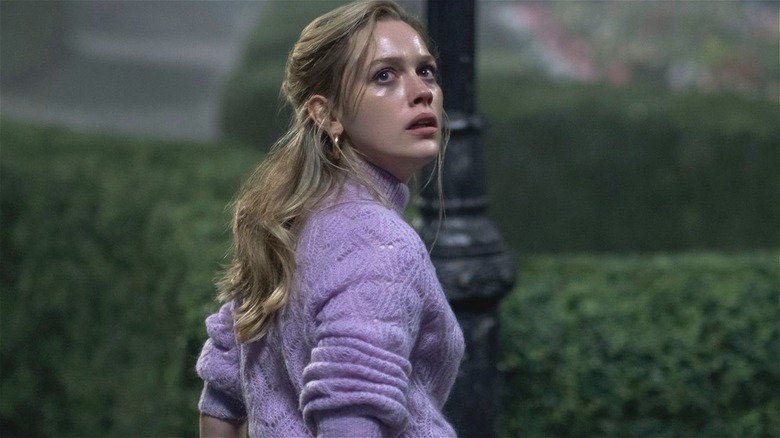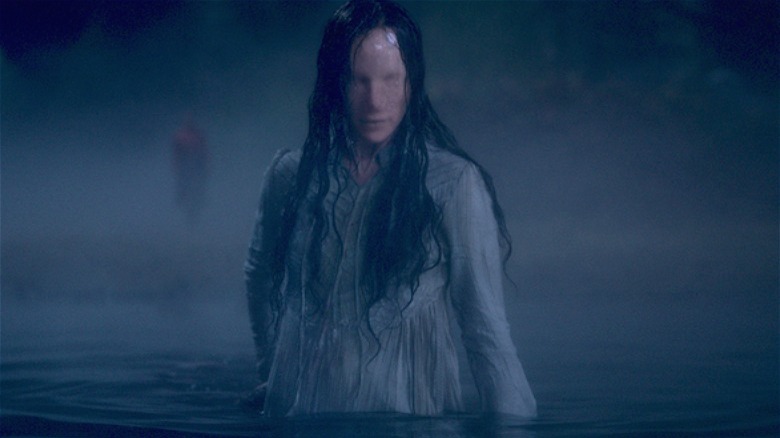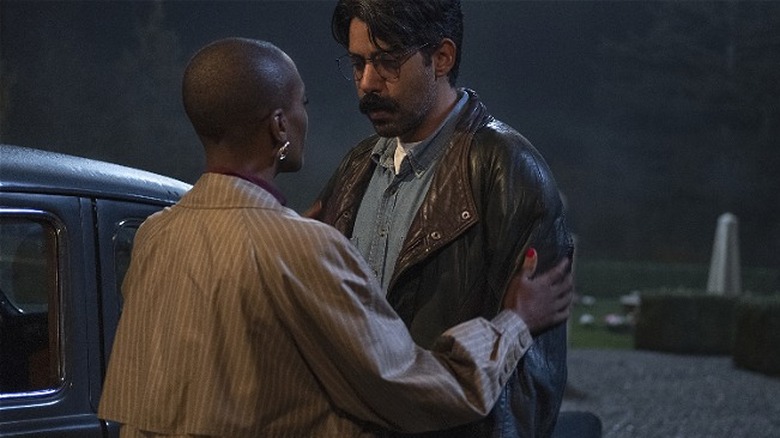Mike Flanagan Rewrote The Rules Of Horror For The Haunting Of Bly Manor
Mike Flanagan successfully adapted Shirley Jackson's "The Haunting of Hill House" into an emotional gut-punch of a series exploring grief and trauma. While Flanagan based the limited series on the basic beats of Jackson's gothic horror novel, his tale emerged as a meditation on how familiar bonds forever haunt us.
When Flanagan adapted Henry James' 1988 novella "The Turn of the Screw" into a television series, he decided to come up with a show that reinvented James' tale and was distinct from "Hill House." Although "Hill House" and "The Haunting of Bly Manor" have common thematic threads, the two stories have different approaches to the concepts that drive the show's hauntings. "Bly Manor" situates its horror in the titular haunted mansion, but how the hauntings begin becomes intertwined with concepts like memory, grief, and oblivion.
How does a ghost haunt? How does this haunting affect the living? Flanagan deftly tackles these questions in "Bly Manor" by dismantling traditional interpretations of a ghost. Here's how he did it.
The rules of a haunting can be reinvented
In the horror genre, there are certain tropes associated with hauntings. Of course, the reasoning behind why a spirit does what it does relies on the suspension of disbelief. In an interview with SYFY WIRE, Flanagan explains the loose rules of hauntings. He discusses "The Ring," a J-horror film that features a cursed videotape that will kill the viewer unless they show it to someone else. Flanagan ponders how a VHS tape came to be possessed and what a wronged spirit achieves by enacting revenge on innocent viewers. Although most viewers look past the flawed logic, Flanagan questions the "problematic" nature of the rules of haunting:
"The thing about hauntings are that they defy explanation because the more you try to explain them, the more ridiculous they can sound. And, they also create rules for themselves that become problematic. Like, if the ghost is there because they're murdered before their time and they wanted revenge and now they're killing other people, why don't they get to be ghosts?"
Flanagan puts forward a fair point. Why doesn't every person murdered by a ghost also hound the living for vengeance? Do these selective rules solely exist for the sake of contrived storytelling? To challenge these notions and offer a compelling explanation of why ghosts haunt, Flanagan carefully crafted the narrative of "The Haunting of Bly Manor." Before we delve into Flanagan's supernatural story, please note that there are major spoilers ahead for "Bly Manor."
How Bly Manor roots its hauntings in endless cycles of grief
The major haunting within Bly Manor can be traced back to Viola (Kate Siegel), who didn't wish to relinquish control of the manor — even in death. Driven by an iron will and the need to find her estranged daughter, Viola haunts the house and drags anyone who interrupts her to the lake. Here, the haunting is caused by an individual's emotional state at the time of their death, extending to the world of the living.
Flanagan uses the example of Hannah's (T'Nia Miller) death to explain how hauntings evolve with time. "If you die on the grounds of Bly Manor, the first thing that happens is you go through a period of intense denial... and that's where we have Hannah," he tells the outlet. Since Hannah is not consciously aware that she's dead, she dreams up conversations with the living and carries on normally for some time. After her memories start getting muddled, she then reckons with the truth of her existence as a ghost who also haunts Bly Manor.
"Bly Manor" situates hauntings as a never-ending cycle of grief — especially considering Dani's (Victoria Pedretti) sacrifice. In the series finale, Dani allows Viola to possess her to save Flora, freeing every trapped ghost and becoming the Lady of the Lake. This action kick-starts a new cycle of hauntings. While Dani is now trapped as a ghost for eternity and will slowly lose her identity, her absence will haunt the living. Flanagan's hauntings in "Bly Manor" are intensely personal, fueled by loss in varying shades. He effectively subverts horror's traditional hauntings, often products of narrative convenience.


